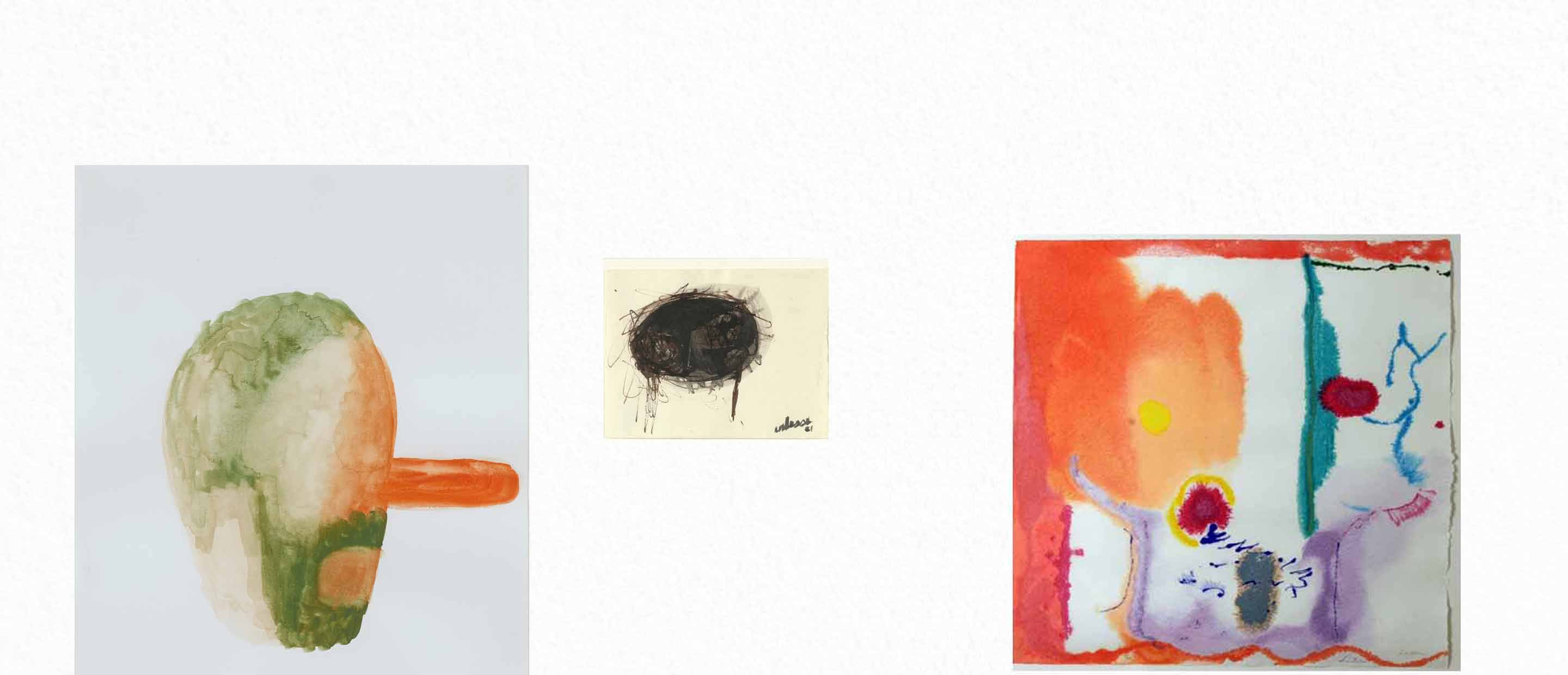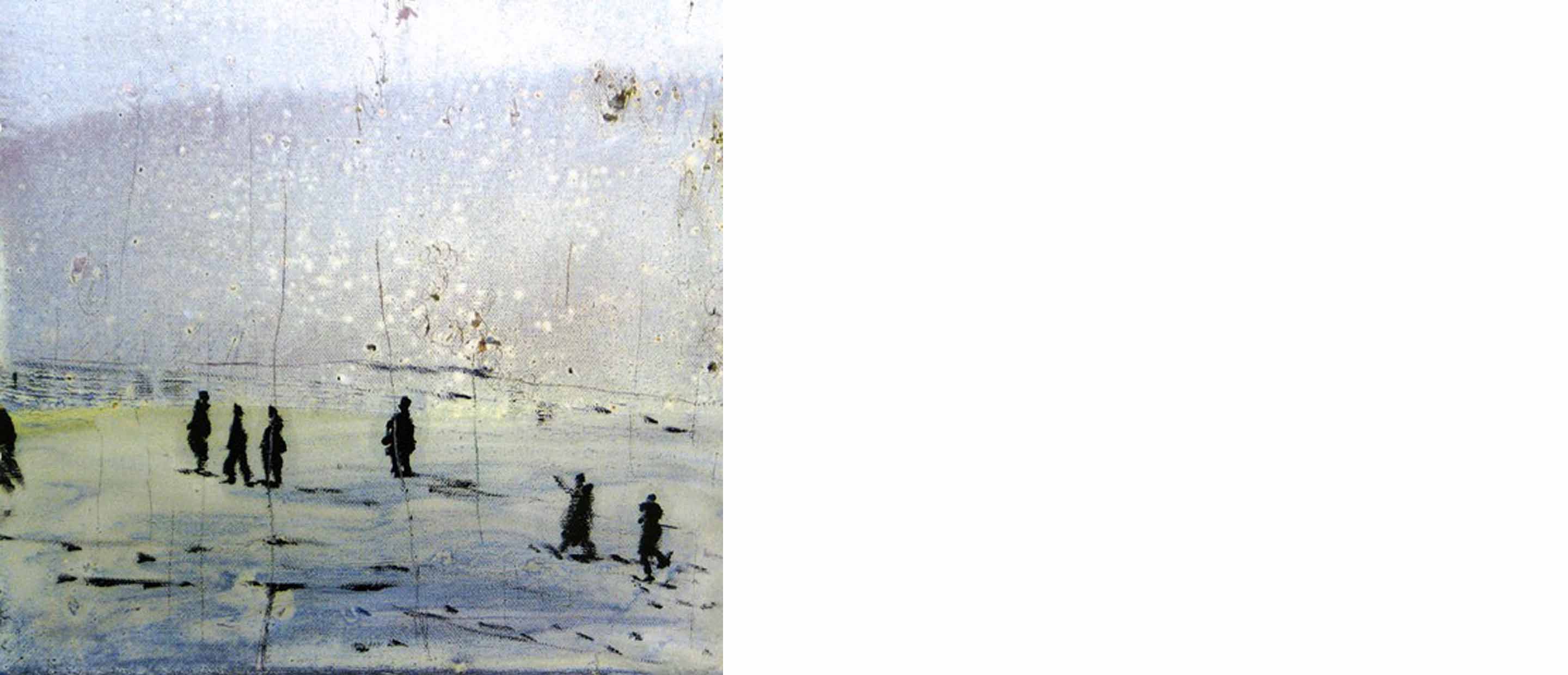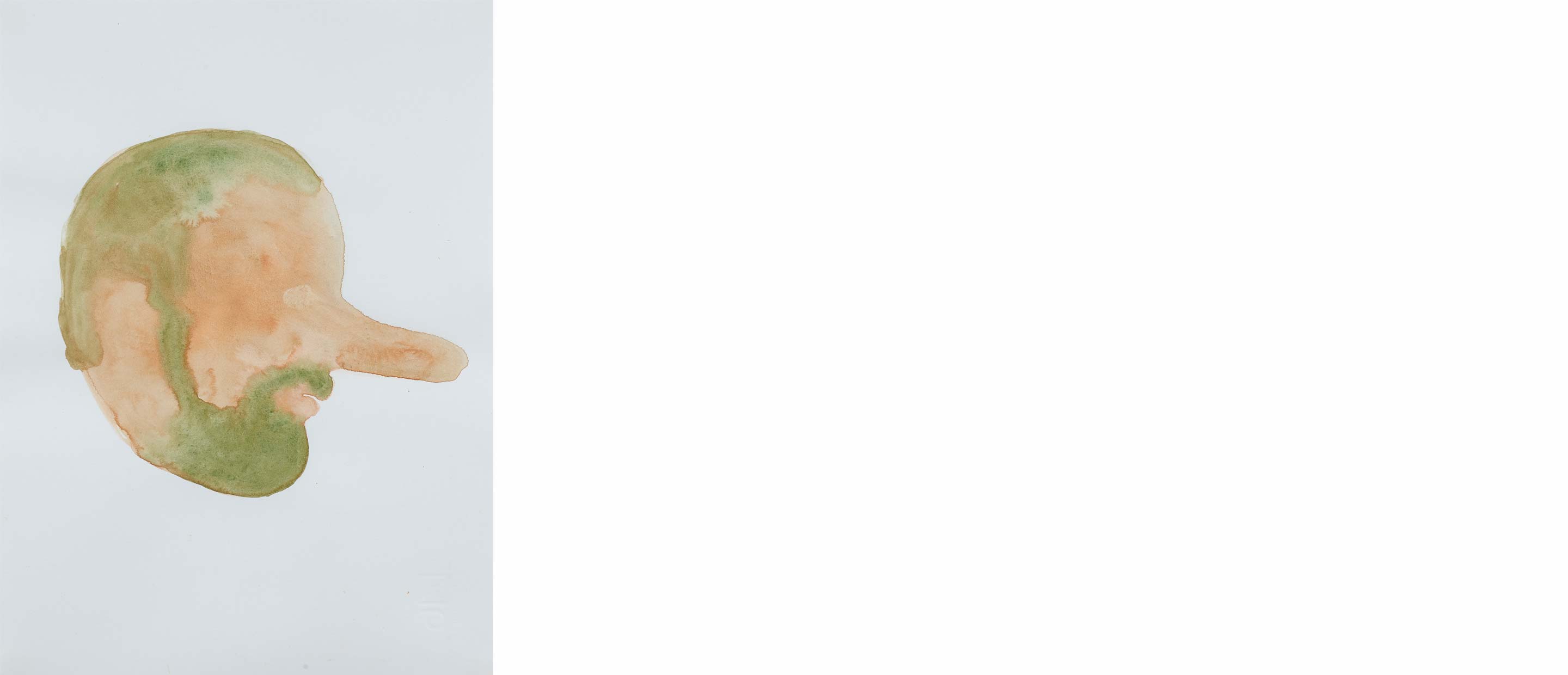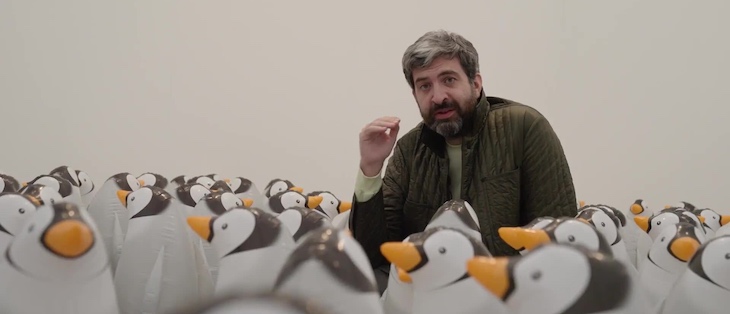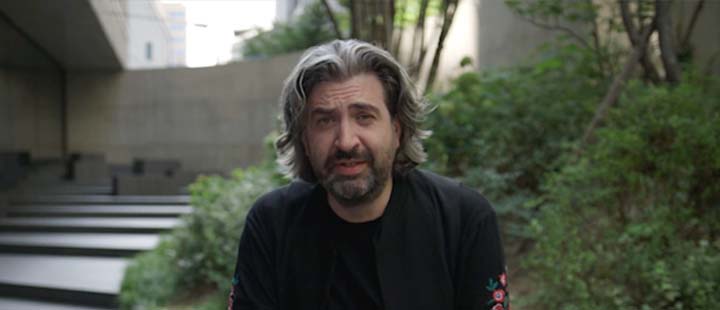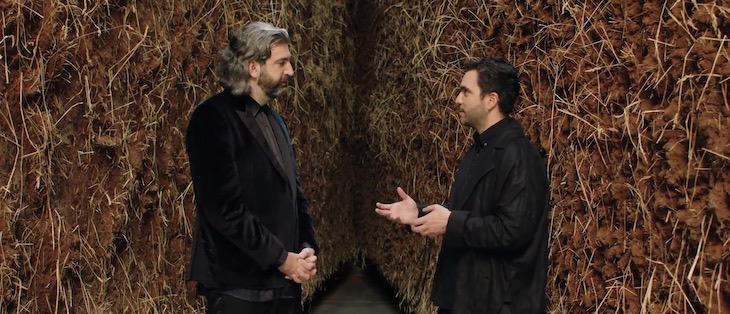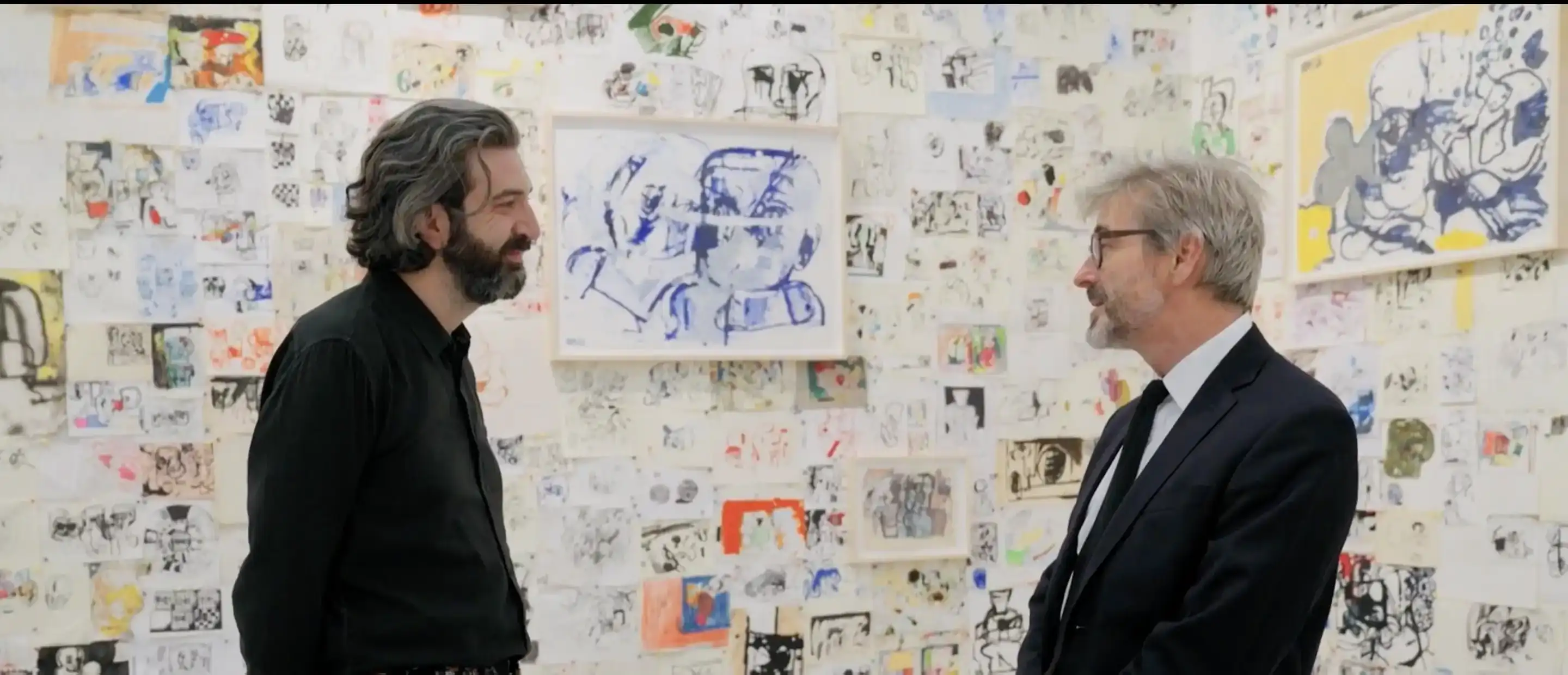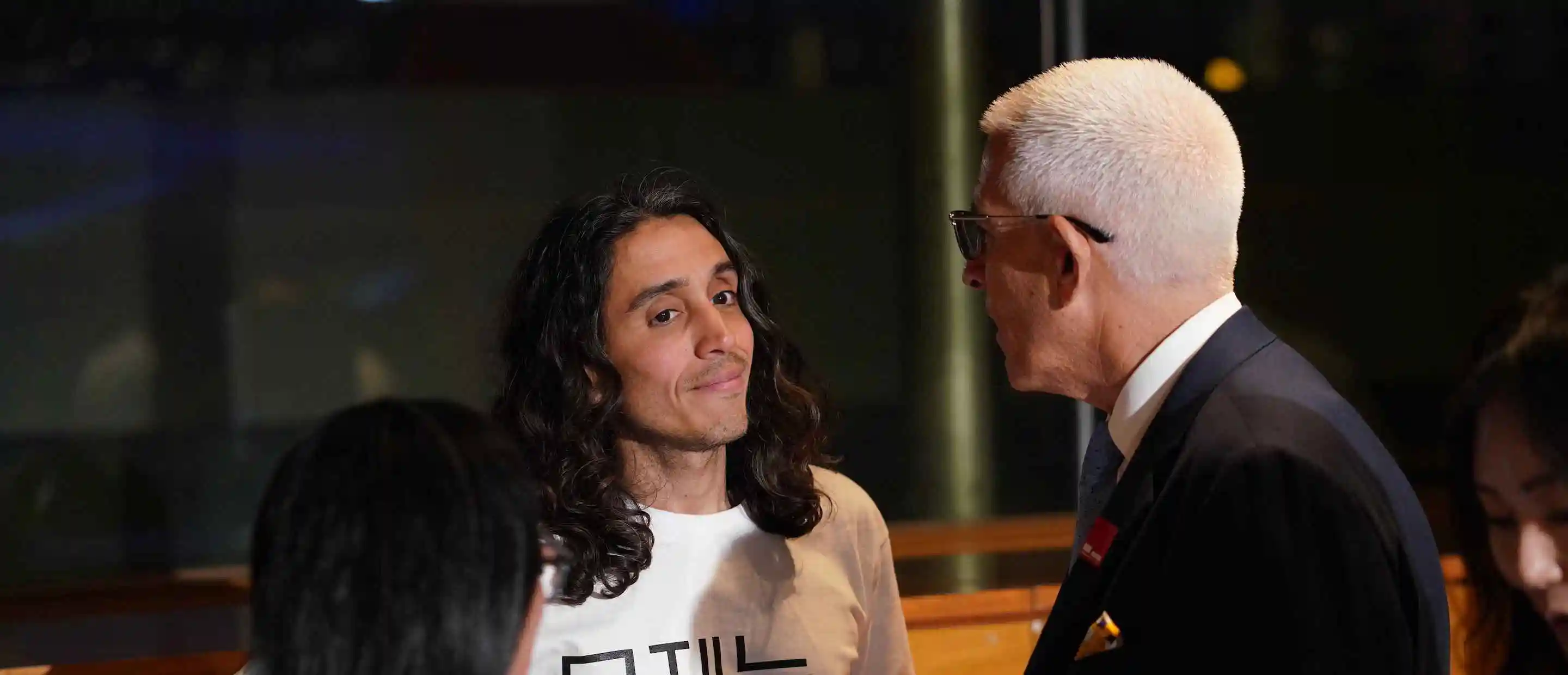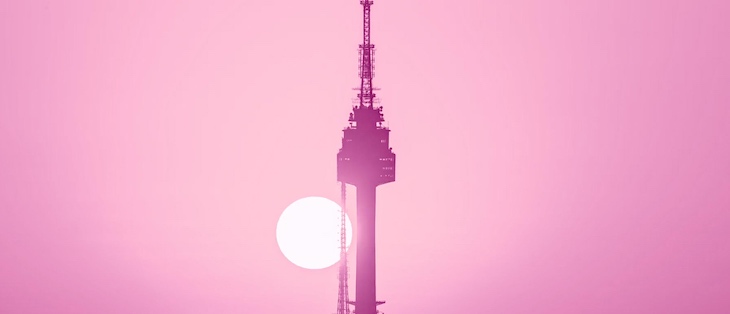A third of the 670 female artists represented in the Deutsche Bank collection will have work displayed as part of the Another World exhibition and postcard sale. Anny Shaw meets some of those contributing.
The Deutsche Bank Collection includes work by 670 female artists from over 40 countries, so Tracey Emin and her studio therefore had plenty to choose from when curating Another World. In the end, the work of 33 artists was chosen to be displayed as part of the main exhibition in the Deutsche Bank Wealth Management Lounges at Frieze London and Frieze Masters. Meanwhile, the postcard sale attracted contributions from 231 artists represented in the collection (listed in full below), including some of the brightest stars in contemporary art.
Maggi Hambling
The Suffolk-born painter and sculptor Maggi Hambling, chosen by the campaigners Mary on the Green to create a public sculpture in London to celebrate the feminist writer and thinker Mary Wollstonecraft, was quick to respond when Emin wrote asking for the women artists represented in the collection to submit postcards for charity.
“Almost every day a case of domestic abuse is revealed. It takes a lot of bravery to come forward and talk about it,” she says. “If the sale of these postcards helps those who help the victims of abuse then it’s a great idea.” Hambling says she opted to paint something “rather jolly”. She adds: “I haven’t tried to paint victims. I hope I have done something quite joyous.”
Hambling has sent in postcards to RCA Secret, the Royal College of Art’s annual fund- raising secret postcard exhibition, every year since it began in 1994. She is a keen advocate of raising money for emerging artists who are struggling financially; the scheme has raised £1m so far.
The anonymous postcard sale is a format that has gained popularity, particularly among charities, but that doesn’t diminish their power, the artist says. “The more attention that is drawn to the victims of abuse the better, and I hope people will spend lots of money on these postcards. There will be something for everyone; all artists are different.”
We’re delighted that such outstanding artists are represented in both the exhibition and the sale. The result is an environment that will not only engage our guests but also give them a chance to participate in a memorable event for a very worthy cause.
Nicola West
Global Head of Events, Partnerships & Sponsorships, Deutsche Bank Wealth Management
Elizabeth Magill
The Irish painter Elizabeth Magill, who has a conference room named after her at the Deutsche Bank headquarters in London, is no stranger to philanthropy. This year she has produced work for no fewer than four charities, including a project with the Imperial Charity marking the National Health Service’s 70th anniversary.
A decade ago, Deutsche Bank acquired a set of 10 lithographs of landscapes by Magill, which have inspired the artist’s postcards. “I wanted to do something that directly relates to that series of prints,” she says. The artist is represented in ‘Another World’ by the painting Bonn 2 (2003), which she describes as “not a landscape as such, but more like a suggested backdrop to how I feel, think and interpret the world”.
For Magill, an exhibition of women artists, coupled with the postcard project, could not be more timely. “Because of the #MeToo movement and the highlighting of the gender pay gap, I think we are entering into another world for women. At least I hope we are entering another world, although it remains to be seen; we thought the same in the 1960s,” she ponders.
Despite the hurdles, Magill says she has never been preoccupied with her position as a woman. “I have always been concerned first and foremost with my work. My advice to a young woman today would be: just focus on your work, don’t be dissuaded.”
Emel Geris
“To begin with, I did not realize that the postcards would be shown – and sold – anonymously. I saw them as a natural progression of my paintings and just started working,” says the Berlin-based Turkish artist Emel Geris, before wondering: “I hope they won’t be too easily recognized!”
The only difference between the postcards and Geris’s typical work is the scale. “I adjusted the series I am currently working on to the card format, nothing more,” she says.
Tracey Emin has selected Geris’s painting, Dahinter (behind) (2017) for ‘Another World’. The work is part of a series that “deals with dreams, impermanence, trauma and other similar themes”, Geris says. “I created these pictures spontaneously, one after another, like a diary. I still work with these sorts of themes today, but in a completely different way. To see them after so many years seems like another world.”
Geris says the #MeToo debate is part of a long-running narrative that is likely to continue for some time. “As long as this strange world keeps rotating, it will probably always be important,” she says. “We have to keep striving to make things better.”
Rosemarie Trockel
Twenty-one watercolor sketches by the German artist Rosemarie Trockel, many of which depict heads in various guises, have been selected by Tracey Emin to hang in the wide corridor of the Deutsche Bank Wealth Management Lounge that leads to the fair itself.
Most striking among them are a group of drawings that show what appears to be a man’s head, in profile, with a wildly protruding nose, often painted bright red. “Trockel’s ‘Nose’ or ‘Pinocchio’ drawings exist in various versions in both black and white and color, and are mainly from the 1990s,” says Monika Sprüth, the co-founder of the Sprüth Magers gallery, which represents the artist. Trockel has also employed this motif in her sculptures. “They alternate between the figure of Pinocchio, the liar, and a phallic representation,” Sprüth says. “But interestingly the portrait has no clear female or male characteristics. Like many of her works, it deals with gender-specific assignments in a humorous way.”
Other works on display reflect recurring themes in Trockel’s work, such as portraits of monkeys, people sleeping and domestic objects such as vases and pots. Trockel rose to fame by shifting the way traditionally feminine materials were used – and perceived – by the male-dominated art world, shunning painting in favor of drawing and crafts.
Anny Shaw is a London-based writer and editor specialising in arts and culture. This article first appeared in the Summer 2018 issue of LUX magazine.
UPDATE: The Another World charity postcard sale has now closed.
Artists featured in the Another World charity postcard sale:
Maike Abetz, Silja Addy, Lena Ader, Ebtisam Abdulaziz, Claudia Angelmaier, Inna Artemova, Silvia Bächli, Yto Barrada, Gabriele Basch, Lydia Bauman, Mónica Bengoa, Annette Besgen, Yifat Bezalel, Betty Böhm, Nina Bovasso, Ulla von Brandenburg, Birgit Brandis, Monika Bravo, Elena Brazzale, Dorothea Breick, Birgit Brenner, Jane Brettle, Maria Brunner, Susanne Bürner, Carla Busuttil, Hera Büyüktaşçıyan, Luisa Caldwell, Alice Cannava, Marina De Caro, Virginia Chihota, Dawn Clements, Ali Cockburn, Hannah Collins, Melanie Comber, Cynthia Connolly, Keren Cytter, Adriana Czernin, Isa Dahl, Sabine Dehnel, Elke Denda, Susan Derges, Rini Dhumal, Iris van Dongen, Rowena Dring, Barbara Eichhorn, Tracey Emin, Kate Emlen, Ayşe Erkmen, Inci Eviner, Larissa Fassler, Lara Favaretto, Margarita Fedina, Doreen Fletcher, Regina Frank, Alejandra Freymann, Sabrina Fritsch, Ana Gallardo, Sandra Gamarra, Jaya Ganguly, Jo Genssler, Emel Geris, Angelika Gilberg, Gauri Gill, Alexandra Grant, Sara Greenberger Rafferty, Katharina Grosse, Asta Gröting, Monika Grzymala, Cordula Güdemann, Kathrin Günter, Nilbar Güreş, Maggi Hambling, Susie Hamilton, Tanya Hengstler, Mona Hatoum, Gwen Hardie, Brenda Hartill, Mathilde ter Heijne, Silvia Hell, Christine Hill, Katrin Hoffert, Christine Hohenbüchler, Jenny Holzer, Franka Hörnschemeyer, Leiko Ikemura, Mella Jaarsma, Duan Jianyu, Glenys Johnson, Lucy Jones, Emiko Kasahara, Tamara K.E., Delia Keller, Michaela Kern, Yvette Kiessling, Astrid Klein, Gisela Kleinlein, Barbara Klemm, Svenja Kreh, Elke Krystufek, Ji Hyun Kwon, Liane Lang, Christine Laprell, Samantha Lasko, Louise Lawler, An-My Lê, Zilla Leutenegger, Anni Leppälä, Xenia Lesniewski, Monica Levy, Kerstin Lichtblau, Annina Lingens, Rosa Loy, Annette Lucks, Britta Lumer, Ingeborg Lüscher, Rut Blees Luxemburg, Agata Madejska, Elizabeth Magill, Alice Maher, Inge Mahn, Linda Matalon, Linda McCue, Michaela Meise, Sandra Meisel, Michaela Melián, Isa Melsheimer, Bärbel Messmann, Rune Mields, Beatriz Milhazes, Tracy Miller, Cathy de Monchaux, Krista Mölder, Şükran Moral, Petra Morenzi, Sabine Moritz, Kirsten Mosher, Elisabeth Mühlen, Wangechi Mutu, Christa Näher, Lada Nakonechna, Caro Niederer, Minako Nishiyama, Rika Noguchi, Edith Oellers, Yumiko Okui, Jenny Okun, Paulina Olowska, Andrea Ostermeyer, Selma Parlour, Claudia Pegel, Rachel Perry, Irene Peschick, Kirsten Pieroth, Evangelia Pitsou, Liliana Porter, Inge Pries, Laure Prouvost, Anne-Katrin Puchner, Gesa Puell, Laura Pugno, Libby Raynham, June Redfern, Paula Rego, Christliebe Reinecke, Christiane Richter, Flavia Da Rin, Carol Robertson, Kenya Robinson, Rekha Rodwittiya, Anke Röhrscheid, Mathilde Rosier, Laura Ruggeri, Ulrike Rutschmann, Jackie Saccoccio, Andrea Salvino, Karin Sander, Fanny Sanín, Aura Satz, Lynn Saville, Silke Schatz, Christine Schindler, Eva Schlegel, Cornelia Schleime, Louise Schmid, Valerie Schmidt, Iris Schomaker, Eva-Maria Schön, Lauren Seiden, Katharina Sieverding, Amy Sillman, Anjum Singh, Rebecca Sitar, Ellen Slegers, Sally Smart, Kiki Smith, Agathe Snow, Annegret Soltau, Dieuwke Spaans, Daniela Steinfeld, Jessica Stockholder, Despina Stokou, Gabriele Straub, Mari Sunna, Tabaimo, Dafna Talmor, Susa Templin, Rebecca Ann Tess, Petra Trenkel, Anna Tretter, Rosemarie Trockel, Barbara Camilla Tucholski, Nicola Tyson, Julie Umerle, Amanda Vesey, Jorinde Voigt, Phoebe Washburn, Ina Weber, Carrie Mae Weems, Caroline Weihrauch, Eleanor White, Pae White, Rachel Whiteread, Anna B. Wiesendanger, Letha Wilson, Dorothee von Windheim, Andrea Witzmann, Daniela Wolfer, Manuela Wossowski, Catherine Yass, Shen Yuan, Maria Zerres, Brigitte Zieger.
